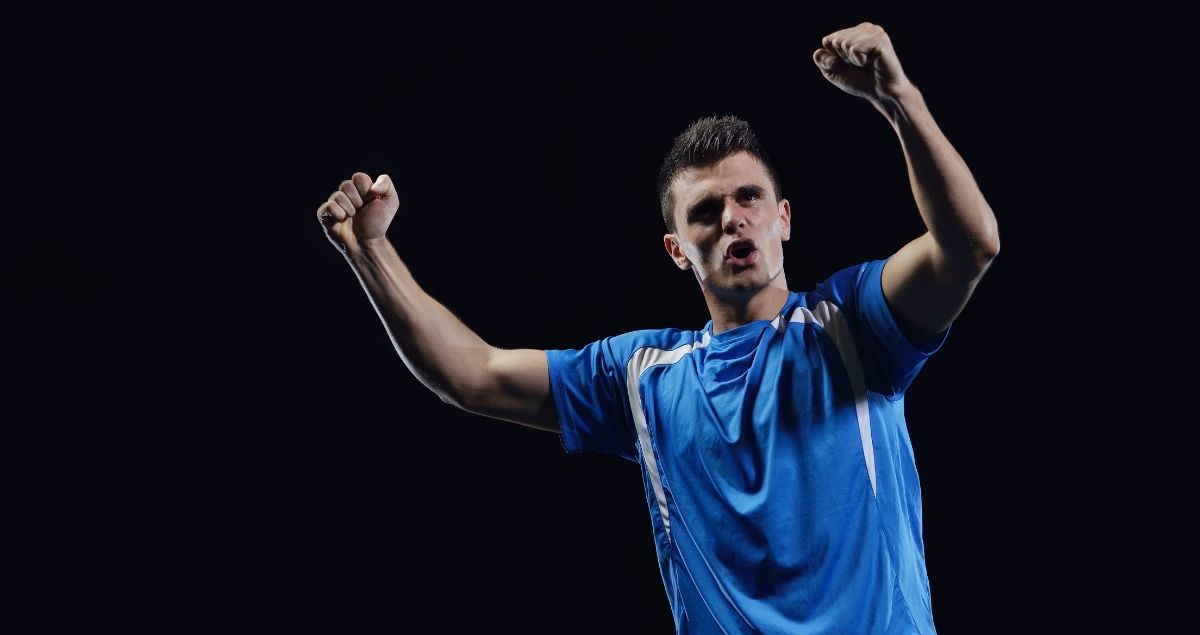Boost your betting experience and get up to $200 bonus right now!
Football is never just a game. It’s a roaring mirror reflecting society’s glories, struggles, and contradictions. When the ball rolls, it carries the weight of history, culture, economics, and identity intertwined like never before. The beautiful game has evolved alongside nations, capturing the spirit of their people—from hope and pride to conflict and transformation. Across continents and leagues, football clubs stand as vibrant microcosms of the societies they belong to, with stories that reveal much more than what happens on the pitch.
Look no further than how clubs embody class tensions, immigration waves, racial diversity, or political upheaval. They echo economic booms and busts, mirror social progress and resistance, and hold the power to unite or divide communities. From humble local teams with deep working-class roots to global mega-brands fueled by billions in sponsorships, each club tells a tale of its city, country, and era.
In a world where social media feeds frenzy and fan identities clash, these stories act as reminders that football’s heart beats in human connection. The game’s grand theatre and its grassroots passion form a unique lens to understand societies, reflecting their hopes, prejudices, and potential for change. Exploring club case studies offers a fascinating way to grasp how football shapes—and is shaped by—the world we live in today.

Sommaire
ToggleHow German Football Reveals the Nation’s Engineering Soul and Social Stagnation
German football is a fascinating portrait of relentless engineering precision paired with a stubborn resistance to innovation—traits deeply embedded in the nation’s identity. The country’s approach to the game embodies a quiet efficiency that has delivered consistent success at international levels: 22 semi-final appearances and seven titles in major tournaments stand as proof (as of 2022). Yet, that same steadfastness also reveals cracks when it comes to adapting to new ideas and youth influx, hinting at broader societal dynamics.
Germany’s football narrative is not about inventions but upgrades. Unlike Italy’s “libero” and Spain’s Pep Guardiola era who revolutionized football tactics, German innovation revolved around refinement, applying engineering rigor to improve existing structures. This approach created a reputation for the national team as “tournament specialists” — excelling in short, intense stints rather than prolonged dominance. The drawback? An entrenched attachment to proven methods leaves the team vulnerable to stagnation once rivals innovate faster.
This echoes the German social fabric. After decades of economic success and political stability, a sense of “Weltschmerz” or world-weariness stifles progressive forces. From Berlin to Munich, bureaucracy and risk aversion can stall cultural evolution. The German Football Association (DFB) mirrors this with conservative policies, inefficient early league professionalization (Bundesliga founded only in 1963), and reluctance to embrace diverse football markets or styles quickly enough to challenge clubs abroad dominating Europe.
Football’s Mechanized Excellence and Dwindling Creativity
The German football system has been a powerhouse of youth academies emphasizing structure and discipline. Yet a calculated and mechanized approach to player development sometimes limits flair and creativity. Players emerge as reliable cogs in a perfect machine—a reflection of Germany’s famed engineering industry—but often lack the bold inventiveness seen in other countries’ stars.
- The Legacy of “Gegenpressing”: While modern pressing tactics often credit Pep Guardiola, German teams like Borussia Dortmund popularized a physical, high-energy style exhibiting German work ethic.
- Conservative Club Management: German clubs hesitate to pursue risky transfers or radical marketing moves compared to English counterparts backed by billionaires. This impacts competitiveness in Champions League and beyond.
- Adaptation Struggles at International Level: The German team’s consistent group-stage failures as defending champions point to systemic complacency.
- Women’s Football Lagging: Though women’s football blooms, it remains on the periphery compared to men’s dominance, mirroring broader gender inequalities in society.
German clubs lag behind economically despite Bundesliga’s solid domestic fanbase. When placed alongside European giants like Nike-sponsored English clubs or Adidas-backed Spanish powerhouses, German teams struggle to harness global commercial appeal. The disparity manifests in fewer continental trophies compared to teams from richer markets.
| Country | European Major Titles (Men’s Clubs, as of 2023) | Top Club Sponsorships | Domestic League Foundation | Innovation Strengths |
|---|---|---|---|---|
| Germany | 19 | Adidas, Puma, Reebok | 1963 (Bundesliga) | Engineering precision, disciplined tactics |
| England | 33 | Nike, Umbro, New Balance | 1888 (Football League) | Financial innovation, global marketing |
| Spain | 40 | Adidas, Kappa, Asics | 1929 (La Liga) | Creative play, tactical evolution |
| Italy | 29 | Puma, Kappa, Hummel | 1929 (Serie A) | Defensive formations, tactical inventions |
Germany’s football culture, like its society, confronts the challenge of reinvention in the face of rapid globalization. As international player transfers swell and commercial pressures mount, German football must balance its disciplined heritage while unlocking new creativity and inclusivity. This ongoing tension perfectly mirrors wider debates in German society around tradition versus progress, efficiency versus innovation.
The English Premier League: A Microcosm of Britain’s Complex Identity and Economic Ambitions
England’s Premier League (EPL) stands as a dazzling showcase of British football’s evolution from proud originator to commercial powerhouse with a distinctly global character. What started as a nationalist push for football control morphed into the world’s richest football league by 2019, with revenues soaring to nearly €6 billion before the Covid pandemic. But beneath the glitzy surface lies a fascinating reflection of deep-seated British societal contradictions—between tradition and modernity, local identity and globalization, social class and cosmopolitanism.
The EPL epitomizes British society’s complex relationship with change. Initially resistant to external oversight, the English FA avoided FIFA until the 1950 World Cup—mirroring some post-Brexit attitudes refusing outside interference. Yet English clubs relentlessly pursued financial innovation by taking control in 1992, turning football into a global entertainment empire harnessing international broadcast and sponsorship deals with companies like Nike, Puma, and New Balance.
Today, the Premier League is a melting pot of cultures, money, and talent. Foreign ownership dominates, ranging from Middle Eastern funds controlling Manchester City to American billionaires buying Liverpool. Foreign players made up over 70% of squads in 2018/19, coaches largely hail from abroad, and British club identities often blur under global brand strategies.
Economic Power and Social Impact of the Premier League
The Premier League’s financial ecosystem is a marvel of modern sports business. The shotgun marriage of football passion and corporate strategy created a unique spectacle captivating domestic and international fans alike. The league’s revenue streams—domestic and international TV rights, sponsorships, match-day revenues—set new standards for economic success, while impacting British society on multiple levels:
- Economic Boost to Communities: Clubs generate thousands of jobs in cities such as Manchester, Liverpool, and London, creating indirect economic benefits in hospitality, retail, and transport sectors.
- Diversity and Integration: Multicultural squads give visibility to ethnic minorities and immigrants, fostering community pride and sometimes sparking debates on identity.
- Ticket Prices and Accessibility: Skyrocketing match-day costs have pushed fans toward digital consumption, raising concerns about social inclusivity in football fandom.
- Branding and Global Influence: Partner brands like Adidas, Under Armour, and Reebok expand British football’s reach through merchandise, influencing fashion and youth culture.
Yet, there are contradictions. The influx of global capital contrasts with Britain’s internal tensions—economic disparities, regional divides, and social unrest simmer. Football clubs sometimes mirror this polarization—intense local loyalties coexisting with a growing cosmopolitan fan base disconnected from traditional working-class roots.
| Category | Premier League (2018/19) | La Liga | Bundesliga |
|---|---|---|---|
| Revenue (€ billions) | 5.9 | 3.4 | 3.3 |
| Domestic TV Rights (€ billions) | 1.8 | 0.9 | 1.15 |
| International TV Rights (€ billions) | 1.0 | 0.4 | 0.25 |
| Foreign Players (%) | 71.0 | 60.2 | 56.6 |
| British Club Ownership (approx.) | 8 / 20 | 15 / 20 | 6 / 18 |
The Premier League’s ability to embrace globalization while retaining a unique British edge, even as it faces criticism for over-commercialization, illustrates football’s power to reflect societal shifts. It also highlights tensions around identity, inclusivity, and economic priorities, themes bubbling in everyday conversations beyond the stadiums.
Come for the flip into the end zone, stay for the celly 😤@tylershough2 for six!
— Louisville Football (@LouisvilleFB) November 3, 2024
📺 ESPN#GoCards pic.twitter.com/lQ0DRkQX0I
Italian and Spanish Clubs: Cultural Identities and Tactical Innovations on Display
Italy’s and Spain’s clubs reveal fascinating contrasts and similarities in how football intertwines with national culture and societal values. Both countries boast prestigious leagues, rich traditions, and deep emotional ties between clubs and their communities. These rivalries and narratives reflect history, politics, and changing social dynamics, offering vibrant case studies in football’s societal mirror.
In Italy, clubs are often rooted in strong regional identities, some linked historically to political or class affiliations. The tactical genius—born with inventions like the “libero” and catenaccio—speaks to a methodical mindset geared to defense and pragmatism, traits aligned with Italy’s post-war resilience and charm.
Spain’s football culture underlines artistry and flair, where clubs like FC Barcelona symbolize cultural pride and political identity, notably Catalan nationalism. Spanish football’s rhythmic, technical style contrasts with Italy’s rigid structures, paralleling differing societal attitudes toward innovation and tradition.
Notable Club Case Studies and Their Social Impact
- Juventus FC: Symbolizing industrial Turin’s working-class roots transformed into global brand status, Juventus reflects Italy’s own journey from tradition to modernity. The club’s history is marked by episodes of scandal and redemption, mirroring societal complexities around trust and identity.
- SS Lazio and AS Roma: Their intense Roman derby embodies deep political and social divides within the city, echoing ideological disparities from communism to right-wing populism, revealed in fan chants and atmosphere.
- FC Barcelona: More than a team, Barça’s identity is intertwined with Catalan pride, language, and political activism. The club’s motto, “Més que un club,” captures football as a symbol of cultural resistance and aspiration for independence.
- Real Madrid: A symbol of Spanish establishment, often contrasting with Barça’s regional identity, their success and global branding reflect Spain’s evolving place on the world stage.
The commercial partnerships across clubs utilize global sportswear giants such as Nike, Adidas and Puma, enhancing club visibility worldwide. Sponsorship and merchandising shape fan engagement, while simultaneously raising questions about globalization’s cost to local identities and traditions.
| Club | Region | Political/Social Identity | Global Brand Partners | Recent Achievements |
|---|---|---|---|---|
| Juventus | Turin, Italy | Industrial working-class, national powerhouse | Adidas, Jeep (automotive sponsor) | Multiple Serie A titles, UCL runners-up |
| SS Lazio | Rome, Italy | Right-wing fanbase, political divide | Kappa | Coppa Italia wins |
| AS Roma | Rome, Italy | Left-wing fanbase, social activism | New Balance | Strong Serie A performances |
| FC Barcelona | Catalonia, Spain | Catalan nationalism, cultural pride | Nike, Beko | Recent La Liga titles, UCL triumphs |
| Real Madrid | Spain (national) | National establishment, global icon | Adidas, Emirates | Record European titles |
This nuanced balance of local passion and global commerce presents both opportunities and challenges for how football clubs maintain cultural authenticity in the modern era.

Football as a Stage for Social Change: Diversity, Inclusion, and Fan Cultures
Football’s ability to reflect social realities extends beyond economics and politics into the very fabric of community life. Clubs become spaces where issues of race, gender, identity, and belonging play out vividly—sometimes contentiously, sometimes with hope.
English football’s increasing diversity is one of the game’s most significant societal mirrors. The Premier League’s foreign player dominance, alongside growing representation of ethnic minorities and LGBTQ+ figures, demonstrates football’s potential as an agent for inclusion. Yet the game is far from perfect, as racism and discrimination persist on and off the pitch worldwide.
Clubs increasingly embrace their roles as community hubs, championing causes around mental health, anti-racism campaigns, and LGBTQ+ visibility. The sport’s global reach enables connections among disparate cultures, facilitating dialogue and unity. Fan cultures have evolved, blending local traditions with global influences, sometimes clashing but often enriching football’s social landscape.
- Campaigns Against Racism: Initiatives like “Kick It Out” highlight football’s efforts to challenge discrimination.
- Women’s Football Rising: Growing attention to women’s leagues signals increased social recognition of gender equality struggles.
- Fan Identity and Inclusion Battles: Clashes between “traditionalist” and “modern” fan groups show football as a site of cultural negotiation.
- Community Outreach Programs: Many clubs use football to improve social cohesion, education, and youth opportunities.
| Focus Area | Examples in Football | Social Impact | Challenges |
|---|---|---|---|
| Anti-Racism | Kick It Out campaign, Premier League protocols | Raised awareness, education of fans and players | Persistent racist incidents, slow cultural shifts |
| Gender Equality | Women’s World Cup growth, club women’s teams | Greater visibility, role models for girls and women | Funding gaps, less media coverage than men’s football |
| LGBTQ+ Inclusion | Player coming outs, rainbow armbands in matches | Increased tolerance, community support | Homophobia still present in some fan bases |
| Community Building | Grassroots outreach, urban youth projects | Social cohesion, improved education outcomes | Funding challenges, volunteer reliance |
Football’s role as a mirror here combines joy, conflict, and aspiration in ways few other social phenomena do. Its power to unite diverse communities under a shared passion makes it a unique stage for societal progress.
Local Clubs and Globalization: Balancing Tradition and Commercial Pressures
In a world where football is increasingly globalized, local clubs wrestle with the tension between preserving heritage and pursuing commercial survival. Smaller clubs especially face the challenge of maintaining authentic connections with traditional fan bases while adapting to the digital era and commercial demands.
Take clubs like Leeds United or Sheffield United in England, or FC St. Pauli in Germany — each has cultivated distinct fan cultures rooted in working-class solidarity, political activism, or countercultural pride. Yet, to compete or simply survive, they must navigate sponsorship deals often coming from international brands such as Umbro, Reebok, and Hummel, which may clash with their identity.
This balancing act reflects wider societal tensions between globalization’s economic rewards and local cultural preservation. Clubs become battlegrounds where bien pensant fans, corporate interests, and community values collide:
- Commercialization vs Community Loyalty: Skyrocketing ticket prices and broadcast deals sometimes alienate devoted local fans.
- Digital Fan Engagement: Clubs utilize social media, streaming platforms, and innovative marketing to reach global audiences, occasionally at the expense of local spirit.
- Political Expression Through Football: Fans continue to use stadiums as forums for social and political messages, reflecting societal debates.
| Club | Region | Fan Culture Identity | Commercial Partners | Challenges |
|---|---|---|---|---|
| Leeds United | England | Working-class pride, resilient fanbase | New Balance, Puma | Balancing commercialization with tradition |
| Sheffield United | England | Community focus, historical roots | Umbro | Maintaining competitiveness, fan engagement |
| FC St. Pauli | Germany | Left-wing politics, anti-establishment fans | Puma, Reebok | Global brand partnerships vs local identity |
At their core, local clubs dramatize the struggle of modern societies to retain identity in the face of global economic and cultural pressures. Their fan cultures—from chants and banners to political demonstrations—keep alive the emotional heart of football, reminding everyone why the sport remains so beloved worldwide.
Frequently Asked Questions about Football Clubs Reflecting Society
- How do football clubs mirror social and political divisions in their cities?
Clubs often arise from communities defined by class, ethnicity, or politics. Their histories, fanbases, and rivalries reflect those underlying social cleavages, making them microcosms of urban identity. - Why is foreign ownership so prevalent in top European leagues?
Global investors see football clubs as lucrative assets and marketing platforms. The influx of foreign money brings financial strength but raises questions about local control and club identity. - How has globalization affected traditional fan cultures?
While globalization expands reach and revenues, it sometimes dilutes local traditions and accessibility, creating tensions between commercial interests and supporter loyalty. - In what ways does football contribute to social inclusion?
Football promotes diversity by creating platforms for minority groups, hosting anti-racism campaigns, and enabling communal experiences bridging social divides. - Are women’s football clubs equally reflective of societal changes?
Women’s football is growing rapidly and increasingly mirrors social developments around gender equality. However, it still faces challenges in funding and visibility compared to men’s football.
Join today and grab up to $200 bonus for your next bets!
Content assisted by AI. This article was created in whole or in part with the help of artificial intelligence.


